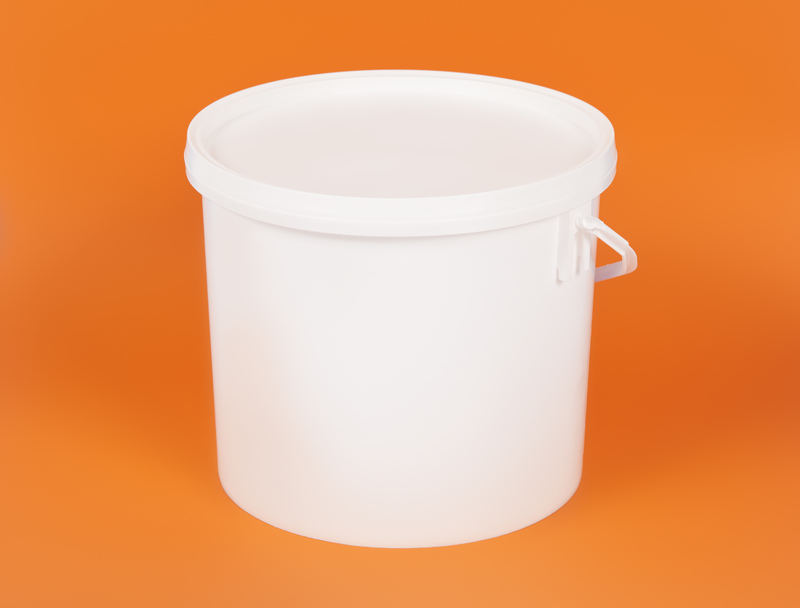How to Protect Your Freezer During Off-Periods
Posted on 19/06/2025
How to Protect Your Freezer During Off-Periods: A Comprehensive Guide
Freezers are a critical appliance in households and businesses, keeping food fresh and safe for extended periods. However, there are times when you may not use your freezer for an extended period--perhaps during a holiday, between tenants in a rental property, or seasonally in a holiday home. Proper care is essential to protect your freezer during off-periods to ensure it remains in optimal condition and is ready for use when needed.
This article covers effective strategies to protect your freezer during non-use, maintaining its efficiency, longevity, and hygiene. Whether you own a chest freezer, an upright model, or a combination fridge-freezer unit, read on for actionable tips and best practices.
Table of Contents
- Why Is It Important to Protect Your Freezer During Off-Periods?
- Proper Defrosting and Cleaning
- Preventing Moisture and Mold Buildup
- How to Prevent Funky Odors
- Physical and Electrical Protection
- Preparing Your Freezer for Use After Off-Periods
- Maintenance & FAQs
- Conclusion: Keep Your Freezer Protected Year-Round
Why Is It Important to Protect Your Freezer During Off-Periods?
Leaving your freezer unattended and unplugged for long stretches exposes it to a variety of risks including:
- Mold and mildew growth due to trapped moisture.
- Unpleasant odors from residues and spoiled food particles.
- Rust and corrosion from condensation.
- Pest infestations if not properly sealed and cleaned.
- Electrical issues when restarting after months of disuse.
By following the right steps to protect your freezer during unused periods, you can lengthen its lifespan, prevent unnecessary repair costs, and ensure a seamless restart when needed.
Proper Defrosting and Cleaning Before the Off-Period
1. Remove All Food Items
Before an off-period, completely empty your freezer. Perishables left inside will spoil and create a breeding ground for bacteria and mold. Use up, donate, or dispose of all frozen foods.
2. Unplug and Defrost
Once empty, unplug your freezer. Allow any ice buildup inside to melt. Place towels or a shallow pan at the base to absorb water.
- Never use sharp objects to remove ice--they may puncture the lining.
- Speed up defrosting by placing a bowl of hot water inside, closing the lid, and waiting approximately 15-30 minutes.
3. Clean Thoroughly
After defrosting:
- Wipe down all interior surfaces using a solution of warm water and mild dish soap or a mix of vinegar and water.
- Don't forget doors, compartments, and gasket seals.
- Dry completely with a soft towel to avoid moisture and mildew.
Preventing Moisture and Mold Buildup
Moisture is the main culprit behind mold growth in an unused freezer. To keep your appliance safe from unwanted fungi:
- Leave the door ajar: Secure the door in a partially open position using a small object or towel. This allows airflow and prevents condensation.
- Position a moisture absorber inside: Place a container of baking soda, activated charcoal, or a commercial desiccant on a shelf.
- Use a freezer deodorizer: This is effective in climates with high humidity or for freezers left unused for months.
Consider: If your model has an automatic defrost system, review the manufacturer's manual for specific shutdown procedures to ensure best results.
How to Prevent Funky Odors During Freezer Downtime
Top Tips for Odor Control
- Clean Surfaces Properly: Pay extra attention to corners and seals where residue can hide.
- Baking Soda Power: Sprinkle a thin layer on surfaces or place an open box inside.
- Leave Vanilla or Citrus Peels: These natural deodorants absorb and mask smells.
Deodorizing Checklist
- Use a new, open box of baking soda specifically for odor absorption.
- Replace or refresh every few months if the downtime is especially long.
- Ventilate by leaving the door or lid ajar at least an inch.
Physical and Electrical Protection During Off-Periods
1. Safe Storage Location
- Keep the freezer in a dry, shaded area--away from direct sunlight and water sources that could cause rust.
- Elevate the unit if the area is prone to moisture, such as a basement or garage.
2. Protect the Power Cord and Electronics
- Wrap the power cord neatly and place it on top of the freezer or secure it out of harm's way.
- Avoid placing heavy items on top of the freezer during storage.
- If unplugged for months, inspect the cable and plug for wear or rodent damage before restarting.
3. Keep It Covered, But Ventilated
- Cover the appliance with a breathable dust sheet or old blanket, leaving sufficient airflow to prevent condensation.
- Never use plastic sheeting, as it can trap moisture and cause rust or mildew.
Preparing Your Freezer for Use After Off-Periods
Restarting a freezer after an off period requires attention to ensure safe, reliable operation. Follow these steps:
- Remove covers and check the interior for dust, moisture, or any foreign objects.
- Inspect the gasket seal for cracks, mold, or brittleness, and clean if needed.
- Plug the freezer in and allow it to reach operating temperature (usually 24 hours) before adding any food items.
- Replace moisture absorbers or freshen up with new baking soda or charcoal.
- Listen for unusual noises and inspect for water leaks upon startup.
- If unsure, consult your manufacturer's instructions for additional safety checks.
Essential Maintenance Tips & Frequently Asked Questions
1. How often should I check my freezer during off-periods?
Ideally, inspect your freezer monthly--especially in humid climates or if stored in a garage. Check for pests, moisture, and mold. Air it out if necessary.
2. Should I leave my freezer plugged in if not using it?
It's more energy-efficient and safe to unplug the freezer when not in use for weeks or longer. Just ensure it's empty, clean, and dry with the door slightly open.
3. Can I keep my freezer outside during off-seasons?
It's not recommended to leave a freezer outdoors for long-term storage. Temperature swings, precipitation, and pests can severely damage the appliance. If unavoidable, use weatherproof covers and elevate it off the ground, but expect a shorter lifespan.
4. What should I do if I discover mold or odors upon reopening?
Deep clean the freezer with a bleach solution (1 tablespoon per gallon of water), rinse thoroughly, and allow it to air out. Repeat with baking soda or vinegar if odors linger.
5. How do I keep pests out of my freezer during downtime?
- Clean and vacuum around the appliance before shutting it down.
- Seal the exterior vents and gaps with mesh or screen if possible.
- Avoid storing food or crumbs anywhere near the freezer.
Conclusion: Keep Your Freezer Protected Year-Round
Taking proper steps to protect your freezer during off-periods saves you money, extends the life of your unit, and ensures you avoid future hygiene or functional issues. Remember to:
- Defrost, clean, and dry your freezer before storing.
- Keep the door slightly open and use natural odor absorbers such as baking soda.
- Store in a safe, dry location and keep the power cord protected.
- Check your appliance occasionally and follow correct steps when restarting.
With these strategies, your freezer will always be ready for safe, efficient operation--even after long periods of non-use. By investing a little time upfront, you avoid bigger problems down the line, ensuring your appliance remains a reliable cornerstone of your home or business.
Related searches: how to winterize a freezer, freezer storage tips during vacation, prevent mold when unplugging freezer, how to clean freezer for storage, should you leave freezer door open when off


Latest Posts
How to Keep Your Freezer Ready for Use with Proper Storage
How to Protect Your Freezer During Off-Periods
Essential Decluttering Hacks for Movers







